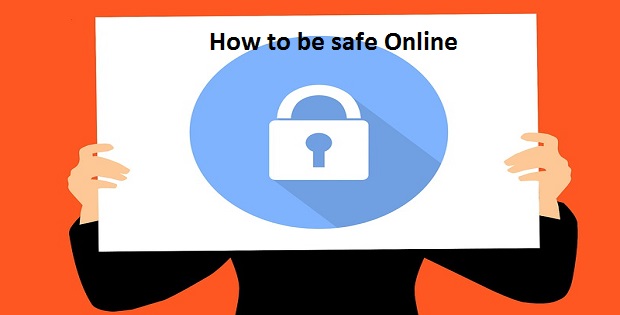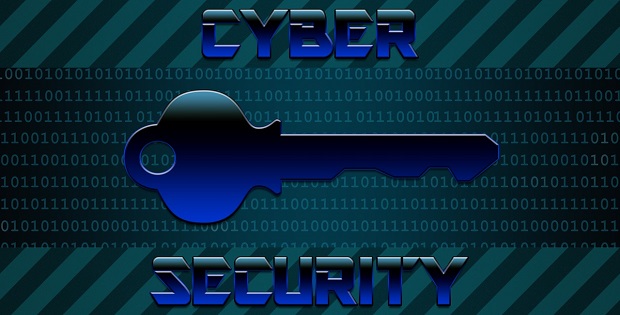9 Tips on How to Be Safe Online
Last Updated on 8 months by Touhid
Just like physical security, it is equally important to stay safe online. We exchange private and confidential data regularly online, so knowing how to protect this data is important. That’s why in this post, we have put some special tips on how to be safe online.
Due to the continuously evolving cyberattack technique, you need to stay ahead of the attackers to stay safe online. Common techniques like using strong passwords are not enough.
So, to learn about expert tips to protect yourself from cyberattacks keep on reading to learn more.
Table of Contents
What is Internet Safety?
Using a range of precautions and safeguards to keep yourself secure online is part of Internet safety. Internet safety cannot be achieved by using just one or two things; it’s a combination of a few security measures, like using stronger passwords and using tools like antivirus software.
Additionally, it also involves having the proper knowledge to understand the potential online security threats. So, to have a safe internet browsing experience without any chances of cyberattacks, you must follow proper internet safety protocols.
It has to do with encouraging an environment of morality and decency on the internet. This entails being considerate of others’ privacy, exercising caution while disclosing information, and being aware of the consequences of one’s online behavior.
Everyone may enjoy a safer and more positive online environment by practicing cyber etiquette and mindful online interaction.
Why Do You Need to Stay Safe Online?
Technically speaking, nowadays online security is more important than your physical security. A simple data breach can destroy your life leading to huge financial losses as well as reputation loss. The reasons why we need to stay safe online are as follows.

Ensuring the trust of clients
Client trust is everything in a business that involves lots of clients. So, as a result, when one of your clients trusts you and provides you with lots of private data, you must know how to protect them from hackers.
So, by maintaining proper internet safety methods you can protect these clients’ data in your organization. Moreover, maintaining these securities will assure your clients that their private data is safe with you.
Protection of private data
Hackers will find it simpler to obtain your data the more information you make available to the public.
So, by following proper online safety tips you can make sure that your private and sensitive data doesn’t get hacked and misused by hackers. Moreover, if this data falls into the hands of scammers, it can lead to identity theft and financial crime so online safety can prevent this.
Hence, it becomes essential to follow safety protocols to protect your data since hacking and misusing private data is becoming easier and this can lead to serious consequences.
Helps to avoid financial losses
Hackers often try to hack into your banking accounts or servers to steal your money. So, staying safe online can help you prevent these financial losses.
Moreover, when scammers get access to your system, they will encrypt important files and ask for money to unlock them. So, online safety tips also play an important role in this.
This is especially important for banks and financial institutions that deal with money over cloud servers.
Prevent Cyberbullying
Cyberbullying is on the rise, and this can have a serious impact on the victim’s life and sometimes can even be life-threatening. Social media connections are also part of online safety. It assists in preventing harassment and cyberbullying.
So, following the proper internet safety protocols can help prevent cyberbullying as well as provide a safe environment for everyone.
Follow industry rules and regulations
Internet security is not just a personal or organizational preference, it is also necessary for following governmental rules and regulations. Industry regulations provide a set of rules to keep yourself and your company safe from cyberattacks.
Unless you manage to follow these guidelines, your company can face legal implications. So, maintaining online safety tips is one of the main ways to follow these industry rules and regulations.
Tips On How To Be Safe Online
Staying safe online is important for everyone and hence our experts have found out these tips that will help you protect yourself and your organizations from cyber-attacks.
Use Stronger password
Using stronger passwords is the first and foremost tips on how to be safe online. People often make the mistake of using simple passwords in either alphabetical or numerical order. Additionally, they commonly use passwords like their birth date, house address, phone numbers, and more.
This is a big no; hackers can easily predict these types of passwords and hack into your account. Also, many people use the same passwords for all their accounts, so if one account gets compromised, hackers can get access to all other accounts quite easily.
You should use unique, complex passwords for each account. Apply a mix of capital and lowercase letters, digits, and unique characters as well. Be careful not to use the same letters and digits again in your passwords.
Enable two-factor authentication
This is another ways to stay safe online. Two-factor authentication is a part of multi-factor authentication, and just as the name states, it uses two different types of security measures to protect your account.
Generally, the first authentication method is the password, and the second can be of different types including, a code sent via SMS, a fingerprint, face identification, a retina scan, and more.
Enable two-factor authentication where possible as it adds an extra layer of security. In this case, even if hackers can guess your password and try to access the account as the second factor, authentication remains completely in your hands.
Avoid using public WiFi
While convenient, public Wi-Fi networks at airports, malls, and parks can be dangerous. Compared to networks in homes or offices, they are typically less secure. Your data may be compromised by threats like Man-in-the-Middle attacks and phony WiFi settings.
Avoid using public WiFi for sensitive operations like banking if it is required. As an alternative, for more security, think about protecting your connection using a VPN.
Don’t download from untrusted sources
One of the easiest ways hackers can hack into your system is by sending you malicious code or attachments or links through emails, messages, and more.
So, as soon as you download or click on these links these hackers either have access to your system or fully or your data like passwords and banking details, is compromised.
Take caution if you get a suspicious email. Before viewing attachments or accessing links, use additional precautions. Only open attachments from trusted sources and avoid suspicious websites. Moreover, do not share personal information unless you’re certain who’s asking for it.
Always keep software and systems updated
Finding the loopholes and any security vulnerabilities in software and systems is the priority for all software developers. So, they continually monitor for new threats and swiftly release security updates to address any vulnerabilities in their software.
Consequently, it’s important to maintain the security of your system by routinely updating any firmware and applications, as well as the operating system and the antivirus software.
Regular upgrades that strengthen your defenses against possible cyber-attacks sometimes include important security advancements.
In addition, you should use a professional anti-virus software (such as Norton, Bitdefender, Kaspersky, Panda, ESET, Avast, and AVG) to protect your device and stay safe online.
Keep a close eye on your credit card bill
Your credit card information can be compromised by a hacker, who could then use it to make transactions without your knowledge. Furthermore, their methods of operation are so covert that it is hard to find them.
Therefore, it is crucial to monitor your credit report to ensure that no one is attempting to obtain your personal financial information. Additionally, you have the option to enable email and SMS alerts for any purchases made with your credit card.
Be careful while browsing through websites
This is another important tips to stay safe and secure online. So, never provide your sensitive and financial information on an insecure website. HTTPS which encrypts information transmitted between your device and the website, is used by secure websites.
Therefore, always check your web browser’s address bar for the padlock or “https://” prefix when viewing websites.
Additionally, bear in mind the recognized guidelines for online payments: reputable e-commerce sites exclusively accept PayPal or credit/debit card gateways. A website is most likely phony if it takes payments via another digital money transfer method.
Ignore Spam Email
Tips on How to Be Safe Online? Ignoring spam email is another important tips to be safe on the internet. The spam email may contain viruses, malware, and vulnerable website links that lead to a phishing website.
Spam emails are generally sent for advertisements or commercial purposes. Typically, spam emails are trying to get your sensitive information such as username, password, credit card details, or personal information.

Backup Data
We often ignore the importance of backing up data, but it is also a huge part of internet safety especially if you deal with a lot of important data. Ransomware usually locks your data, and you cannot access them. Additionally, some malware can destroy your data making it impossible to recover it.
So, backing up data regularly can help you restore your valuable data into place without worrying much about the attack.
Extra Tips to Safe Kids and Students Online
Everyone has access to the internet nowadays including kids and it is an essential medium for studies as well as learning. So, this also necessitates the need to follow a few tips to stay safe online to protect kids and students.
Parental Controls
If your kids are under 18 years of age or below the legal age according to your country’s law, then you must keep an eye on their internet activity.
In addition to kid-specific search engines, search engines provide safety features like “safe search” that screen out offensive information.
Parents may help to ensure their children’s online safety by using applications and parental control features on their phones. But even with these precautions, censorship, and filtering may still be evaded by hackers and online predators.
So, you must be very careful to always look out for the contents your kids are searching for or viewing on the internet.
Limit internet usage
A home policy that limits the use of computers, phones, and tablets in common areas makes it easier to keep an eye on how each gadget is being used.
A good guideline would be to have everyone in the family—parents included—charge their electronics overnight in the living room or kitchen. This technique promotes general well-being in addition to helping with monitoring.
Educate them
Teaching children about the advantages and disadvantages of the internet can assist them in averting issues. Teaching children about safe internet usage habits and how to protect themselves from unfavorable situations is important.
Do not interact with everyone
Social media is a great way to interact and connect with new people, and this also makes it a great platform for scammers to scam students and teens.
There are many incidents where scammers acted like genuine lovers to rob money through emotional blackmail from teens. Additionally, there are many schemes that kids might find to be tempting to be investing in but in reality, these are just fake scams.
So, you need to make sure to keep an eye on your kids’ online activities and monitor who they are talking with and where they are going.
FAQs
If you still have some questions about the topics tips on how to be safe online, read our FAQs below. Hope it will help you clear out all of your confusion.
What should I do if my accounts get hacked?
The first thing you should do is reset your passwords and log out of every other device if you suspect or find that any of your accounts have been hacked. Then enable 2-factor authentication and scan for malware in your device. If you are using company devices, then notify the related authorities about this.
Can hackers still attack me after following all online safety tips?
Unfortunately, cyber attackers are becoming smarter every day and they are continuously implementing new hacking techniques so preventing them fully becomes very tough.
However, following safety tips can help make your system less vulnerable to attacks. Also, you need to stay updated with the latest safety techniques implemented by cybersecurity experts.
Does using a VPN help to be safe online?
VPN helps to keep you safe online by providing a layer of encryption during data transmission. Through the masking of their IP address, the VPN serves as a middleman for the user and the internet.
It improves your online privacy by keeping your surfing behavior hidden from prying eyes, particularly on public WiFi networks.
Final Words
Staying online nowadays is mandatory, most of the work and studies are now highly dependent on the internet. So, ensuring your safety while using the internet is a must and shouldn’t be taken lightly.
Whatever you do, be careful to never give out your login, password, or financial information to anybody. Additionally, be sure you regularly change your passwords and use a unique one each time.
Finally, when visiting a website or downloading software from an unknown website, be sure that you are safe online. We have provided some important tips on how to be safe online. Hope the article will be helpful for you to stay safe and secure online.
Affiliate Disclosure : Cyberthreatportal is a participant in the Amazon Services LLC Associates Program, an affiliate advertising program designed to provide a means for website owners to earn advertising fees by advertising and linking to amazon.com.





